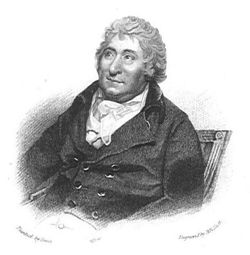Annotation:Warwickshire Lads: Difference between revisions
No edit summary |
No edit summary |
||
| Line 32: | Line 32: | ||
''palpably insulted that I declared I would not go to Stratford.'' | ''palpably insulted that I declared I would not go to Stratford.'' | ||
</blockquote> | </blockquote> | ||
The air also was entered into the period music manuscript collections of John | The air also was entered into the period music manuscript collections of British army fifer John Buttery (early 19th century, Lincolnshire), John Molyneaux (1788, from Sherbourne, Nova Scotia), and William Clark (Lincoln, although the tune may have been entered at a later date, in a different hand). The melody was adopted as the regimental quick march of the Royal Warwickshire regiment. "Warwickshire Lads" was entered in the mid-19th century music manuscript of William Winter, a shoemaker and violin player who lived in West Bagborough in Somerset, southwest England. | ||
<br> | <br> | ||
<br> | <br> | ||
Despite the English title, Elias Howe categorizes it with his ‘Scotch Airs’. | Despite the English title, Elias Howe categorizes it with his ‘Scotch Airs’. | ||
|f_source_for_notated_version= | |f_source_for_notated_version= | ||
|f_printed_sources= Howe ('''1000 Jigs and Reels'''), c. 1867; p. 143. | |f_printed_sources= Howe ('''1000 Jigs and Reels'''), c. 1867; p. 143. Geoff Woolfe ('''William Winter’s Quantocks Tune Book'''), 2007; No. 117, p. 47 (ms. originally dated 1850). | ||
|f_recorded_sources= | |f_recorded_sources= | ||
|f_see_also_listing=Hear the song on youtube.com [https://www.youtube.com/watch?v=baZj92bvh3A]<br> | |f_see_also_listing=Hear the song on youtube.com [https://www.youtube.com/watch?v=baZj92bvh3A]<br> | ||
}} | }} | ||
Revision as of 03:04, 14 July 2023
X:1 T:Warwickshire lands & ye lasses, Ye M:6/8 L:1/8 R:Air S: William Clark of Lincoln music manuscript collection (1770) Z:AK/Fiddler’s Companion K:G d|gdd ecc|dB2 zz2 d|gdd ecc|dB2 z2 z2A| BAB G2G|d^cd A2G|FAd GBe|Adf Beg| faf Ad^c|ddd d2z|ded e2z|(d>ed) ege|dBB cAA| BGG G2z|ded e2z|(d>ed) ege|dBB cAA|BGG G2:||
WARWICKSHIRE LADS'. English, Air and March (6/8 time). G Major. Standard tuning (fiddle). ABB. A British song air and march from the Revolutionary War period. The song, with music set by English stage singer and composer Charles Dibdin (1745-1814), appeared in David Garrick's celebratory production The Jubilee (1769), in honor of William Shakespeare. It was published in London by John Johnson and Longman, Lukey and Broderip in Overture, Songs, Airs, and Chorusses, In the Jubilee or Shakespear's Garland (1770). Garrick's lyric begins:

Ye Warwickshire lads, and ye lasses,
See what at our Jubilee passes,
Come revel away, rejoice and be glad,
For the lad of all lads, was a Warwickshire lad,
Warwickshire lad,
All be glad,
For the lad of all lads, was a Warwickshire lad.
Be proud of the charms of your county,
Where Nature has lavish'd her bounty,
Where much she has giv'n, and some to be spar'd,
For the bard of all bards, was a Warwickshire bard,
Warwickshire bard,
Never pair'd,
For the bard of all bards, was a Warwickshire bard.
Garrick could be a hard taskmaster, and people who worked with him were often reactive. Dibdin wrote:
As for my own concern in it [i.e. The Jubilee], I was a slave to it for months, I set and reset songs to it till my patience was exhausted, which were received or rejected just as ignorance or caprice prevailed...yet during all this time, to accomodate him [i.e. Garrick], and indeed for the sake of the cause towards which I had, at least, as sincere good wishes as himself, I bore anything. One thing galled him very much. He really had not an idea of how to write for music, and I frequently ventured at hinting alterations, as to measure, for the advantage of what he wrote...Matters went on in this train, till at last I was so palpably insulted that I declared I would not go to Stratford.
The air also was entered into the period music manuscript collections of British army fifer John Buttery (early 19th century, Lincolnshire), John Molyneaux (1788, from Sherbourne, Nova Scotia), and William Clark (Lincoln, although the tune may have been entered at a later date, in a different hand). The melody was adopted as the regimental quick march of the Royal Warwickshire regiment. "Warwickshire Lads" was entered in the mid-19th century music manuscript of William Winter, a shoemaker and violin player who lived in West Bagborough in Somerset, southwest England.
Despite the English title, Elias Howe categorizes it with his ‘Scotch Airs’.

